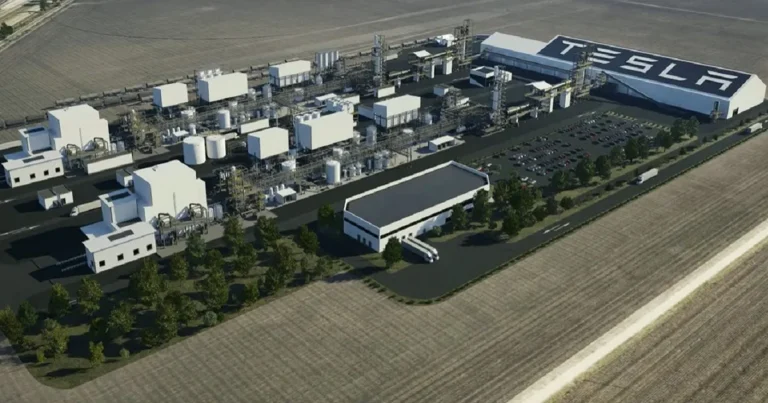Lithium refining is at the heart of one of the most important industries shaping the future of energy and technology. As demand for electric vehicles (EVs), renewable energy storage systems, and other advanced technologies grows, so does the need for refined lithium. This article explains what the lithium refining business is, why it matters, and how it’s shaping the U.S. and global economy. Whether you’re a curious beginner or someone looking to invest in this booming industry, this guide breaks it down in a simple, easy-to-understand way.
What Is Lithium Refining and Why Is It Important?
Lithium refining refers to the industrial process of extracting and purifying lithium from raw materials like lithium ore or brine deposits. Lithium in its raw form is typically found as either lithium carbonate or lithium hydroxide, and the refining process ensures it is pure enough to be used in high-demand industries like batteries, pharmaceuticals, ceramics, and glass.
But why is it important? Refined lithium is a critical material in producing lithium-ion batteries, which power everything from smartphones and laptops to electric cars and renewable energy systems. Without refined lithium, modern energy solutions and technologies would come to a halt. As the world moves toward clean energy, the demand for lithium—and the businesses that refine it—is skyrocketing.
Why Lithium Matters in Modern Technology
Lithium is often referred to as the “white gold” of the energy transition. Its unique chemical properties make it lightweight, highly reactive, and ideal for energy storage. Lithium-ion batteries, the most common application, have become the backbone of modern technology. These batteries have transformed industries like:
- Electric Vehicles (EVs): Lithium-ion batteries provide the lightweight, high-energy storage needed to power EVs. Brands like Tesla, Rivian, and Ford rely heavily on lithium-refined batteries for their cars.
- Renewable Energy Storage: Lithium batteries are critical for storing energy generated by wind and solar power, ensuring a stable energy supply even when the sun isn’t shining or the wind isn’t blowing.
- Consumer Electronics: Smartphones, laptops, and tablets depend on lithium batteries to offer long battery life and quick charging.
Without lithium refining, none of these advancements would be possible, making the lithium refining business an indispensable part of the global economy.
How Refined Lithium Powers Electric Vehicles
Electric vehicles (EVs) are driving the surge in lithium demand. EV batteries rely heavily on refined lithium hydroxide and lithium carbonate, which are the key ingredients in battery cathodes. Here’s how lithium powers EVs:

- Energy Storage Efficiency: Lithium-ion batteries store and release energy more efficiently than other types of batteries, providing EVs with longer ranges and shorter charging times.
- Lightweight Batteries: Lithium’s light weight ensures that EVs remain energy-efficient without adding extra bulk, making them more practical and affordable for consumers.
- Long Lifespan: Refined lithium ensures that EV batteries last for thousands of charging cycles, reducing the overall cost of owning an electric car.
With governments worldwide mandating stricter emissions standards and consumers switching to greener transportation options, the demand for lithium-refined materials in EV batteries is growing exponentially.
The U.S. Role in Global Lithium Refining
The United States has traditionally lagged behind countries like China and Australia in lithium refining. However, this is rapidly changing as the U.S. government prioritizes domestic lithium production and refining to reduce dependency on foreign imports. States like Nevada, North Carolina, and California are emerging as key players in the lithium supply chain, with major projects underway to extract and refine lithium from both hard rock deposits and brine sources.
How Does the Lithium Refining Business Work?
The lithium refining business involves several stages:
- Mining or Extraction: Lithium is first extracted from lithium-rich ores (such as spodumene) or brine deposits found in salt flats.
- Processing and Purification: The raw lithium is processed into a purified form, typically lithium carbonate or lithium hydroxide.
- Manufacturing: Refined lithium is shipped to manufacturers to produce batteries or other high-tech products.
- Distribution: The final products, like lithium-ion batteries, are distributed to industries such as EV production, renewable energy, and consumer electronics.
The refining process requires advanced technology and significant expertise, making it a complex but highly lucrative business.
Why Is Lithium Refining Growing in the U.S.?
The growth of lithium refining in the U.S. is being driven by several factors:
- Rising EV Demand: Companies like Tesla and General Motors are pushing for more localized supply chains to support their growing EV production.
- Government Incentives: Federal policies, such as tax credits for EVs and renewable energy, are creating a stronger demand for domestically refined lithium.
- National Security Concerns: Reducing reliance on foreign lithium imports is a key strategic priority for the U.S., especially as global tensions rise.
Key Challenges in the Lithium Refining Business
The lithium refining business is booming, but it isn’t without its challenges. Some of the major hurdles include:
- High Production Costs: Extracting and refining lithium requires expensive equipment, skilled labour, and significant energy, driving up costs.
- Environmental Concerns: Lithium refining has a significant environmental footprint, including water usage and greenhouse gas emissions.
- Supply Chain Disruptions: Political instability, trade restrictions, and resource scarcity can impact the global supply chain.
- Technological Barriers: Developing efficient and eco-friendly refining methods remains a challenge for the industry.
Overcoming these challenges will be essential for the industry to scale sustainably.
High Production Costs and Solutions
One of the biggest challenges for lithium refining businesses is the high cost of production. Extracting lithium from raw materials is energy-intensive, requiring advanced machinery and high electricity usage. In addition, transporting raw materials and finished products adds to the costs.
- Investing in Automation: Automating parts of the refining process can reduce labour costs and improve efficiency.
- Scaling Up Production: Large-scale operations can lower per-unit costs by spreading fixed expenses across greater output.
- Government Support: Subsidies and tax credits can help businesses offset the high upfront costs of setting up lithium refining facilities.
Environmental Impact of Lithium Refining
Lithium refining comes with significant environmental concerns, including:

- Water Usage: Extracting lithium from brine can require millions of gallons of water, impacting local water supplies.
- Carbon Emissions: The energy-intensive refining process contributes to greenhouse gas emissions.
- Waste Management: Refining produces chemical waste, which can be harmful to the environment if not handled properly.
Advances in Green Refining Technology
Fortunately, advances in green technology are helping to mitigate these impacts. Innovations include:
- Direct Lithium Extraction (DLE): This new method reduces water usage and energy consumption during lithium extraction.
- Renewable Energy Integration: Many lithium refining facilities are now using solar or wind energy to power their operations.
- Recycling Lithium Batteries: Recycling programs are being developed to recover lithium from used batteries, reducing the need for new extraction.
Steps to Start a Lithium Refining Business
If you’re interested in starting a lithium refining business, here are the basic steps:
- Research and Planning: Understand the market demand, competitors, and key technologies.
- Secure Funding: Obtain the capital needed to set up a refinery and purchase advanced machinery.
- Choose a Location: Identify areas with access to lithium deposits or proximity to manufacturing facilities.
- Hire Experts: Assemble a team of engineers, chemists, and skilled workers to manage the refining process.
- Comply with Regulations: Obtain permits and adhere to environmental and safety standards.
- Invest in Technology: Use the latest refining techniques to ensure efficiency and sustainability.
Opportunities in the U.S. Lithium Refining Industry
The U.S. offers exciting opportunities for lithium refining businesses, including:
- Federal Funding: Programs like the Bipartisan Infrastructure Law allocate billions of dollars to domestic EV and battery production.
- Growing EV Market: The U.S. EV market is expected to grow exponentially, increasing the demand for refined lithium.
- Strategic Partnerships: Collaboration with automakers, battery manufacturers, and renewable energy companies can drive business growth.
Incentives for U.S. Lithium Refining Companies
To encourage domestic production, the U.S. government has introduced a range of incentives for lithium refining businesses. These include:
- Tax Credits: Companies can receive tax credits for producing lithium for EV batteries and renewable energy storage.
- Grants and Loans: Federal grants are available to fund research and development in lithium refining technology.
- Import Tariffs: Policies designed to limit imports of foreign lithium can benefit domestic producers.
The Bottom Line
The lithium refining business is poised to play a central role in shaping the future of energy and technology. With the rise of electric vehicles, renewable energy, and advanced electronics, the demand for refined lithium is only set to increase. For entrepreneurs, investors, and policymakers, this industry offers immense opportunities. However, challenges like high costs and environmental concerns must be addressed to ensure sustainable growth. As the U.S. ramps up its efforts in lithium refining, this sector is expected to become a cornerstone of the clean energy transition.


